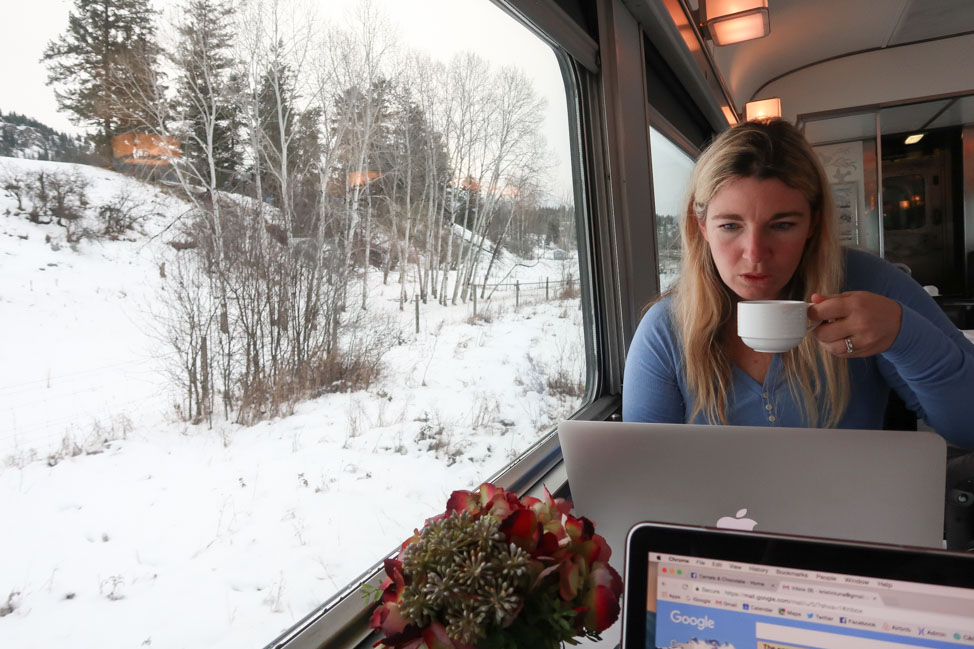
2020 Trends: A New Decade in Travel
For the past 20 years, I’ve been on the go. In that time, I’ve visited all 50 American states; explored more than 130 countries on six continents; jumped out of planes; dove beneath the ocean’s surface among sharks and turtles, eels and octopi; circumnavigated the globe by ship; and had countless bucket list experiences to fill more than one lifetime. I’ve shared my travels with major publications like Conde Nast Traveler and Travel + Leisure, as well as on my own 13-year-old blog, Camels & Chocolate.

And while a psychic I may not be, I have plenty of predictions of my own about what travel trends will be hot in 2020—or maybe this is simply perhaps how I hope the next decade will kick off.
Staying closer to home
Visa restrictions are tightening for many countries—particularly those attempting to come into the United States—and U.S. Homeland Security will require Americans have a REAL ID to embark on air travel beginning in October 2020. While the hassle may make flying more a headache than ever, this doesn’t have to mean your travels halt. Just because you can’t might not be able to go as far, doesn’t mean you can’t travel as often.

In a world where we often neglect to explore our own backyards, now is as good a time as any to bust out a map and get to work tackling your own state or region, wherever that may be, by train, car or even on foot. Since moving back to the South eight years ago, I’ve taken every opportunity to go on weekend trips to Georgia, Alabama, Kentucky, Ohio and the other states that border my Tennessee home. The result?
While I may not be racking up the frequent flier miles, I traveled 58,000 miles by car in 2019 alone and have discovered many gems I didn’t know existed while growing up here.
Experiential travel is king
From Millennials to boomers and everyone in between, travelers crave more than just surface-level travel, but experiences that stay with them for years to come, whether a homestay in rural Africa or a surf retreat in Bali.

In my own corner of the planet, I’ve spent the past couple years exploring every last attraction along Tennessee Whiskey Trail—which fuses Southern culture with history and our state’s favorite drink in a 600-mile-long collection of 30 distilleries that stretches from one corner of the state to the other—as well as the Natchez Trace Parkway, a centuries’ old migration trail once traveled by Native Americans, who were tracking bison and other game, that stretches 444 miles down to Southern Mississippi.

Truffle hunting, WWOOFing (that’s living and learning on an organic farm), glacier hiking and live-aboard dives are all great ideas for experiential travel, and many destinations are coming up with their own unique offerings, whether an oyster trail or a hop-on, hop-off craft beer bus tour.
Less emphasis on perfection
Gone are the days when everything was done “for the ‘Gram” and the driving force behind your every move was for you to be the envy of your every friend (and foe, too); nowadays, while social sharing has reached a fever pitch, the “Instagram vs. Reality” craze has caught like wildfire.

The result? You’ll see deeper beyond the lens than ever before. Rather than simply show that, travelers on social media are beginning to show just what it took to capture that “perfect” shot—the good, the bad and most definitely the ugly—and how the experience may have not been as dreamy as it seems (e.g. crowds by the hundreds cluttering that sunset vista, thus possibly encouraging your audience to seek lesser-known spots instead).
More focus on the environment
Modern-day superheroes like teenaged climate activist Greta Thunberg have put the environment front and center on the global stage, and for good reason—scientists around the world are declaring that Earth is facing a climate crisis and that “untold suffering” is coming if changes aren’t made and soon.
More than ever, I see travelers attempting to neutralize their carbon footprint by flying less (or paying more for direct flights since planes burn more fuel at takeoff), offsetting emissions by purchasing carbon credits (many projects of which involve the planting of trees) and getting rid of single-use plastic altogether (which can be tough when many hotels give away mini-bottles of toiletries by the handful). And while metal straws and drinking canisters are a great start, there are plenty of other ways you’re hurting the environment with your consumption of products.
Some companies I’m loving that are revolutionizing the way we think and travel sustainably are Bite, zero-waste, vegan toothpaste tablets that are perfect for every traveler, Mother’s Vault’s BPA-free bamboo toothbrushes and Leaf Shave, a plastic-free razor that promises a better shave.
What trends do you hope to see in the travel industry in 2020?
This guest post was written by Kristin Luna.



